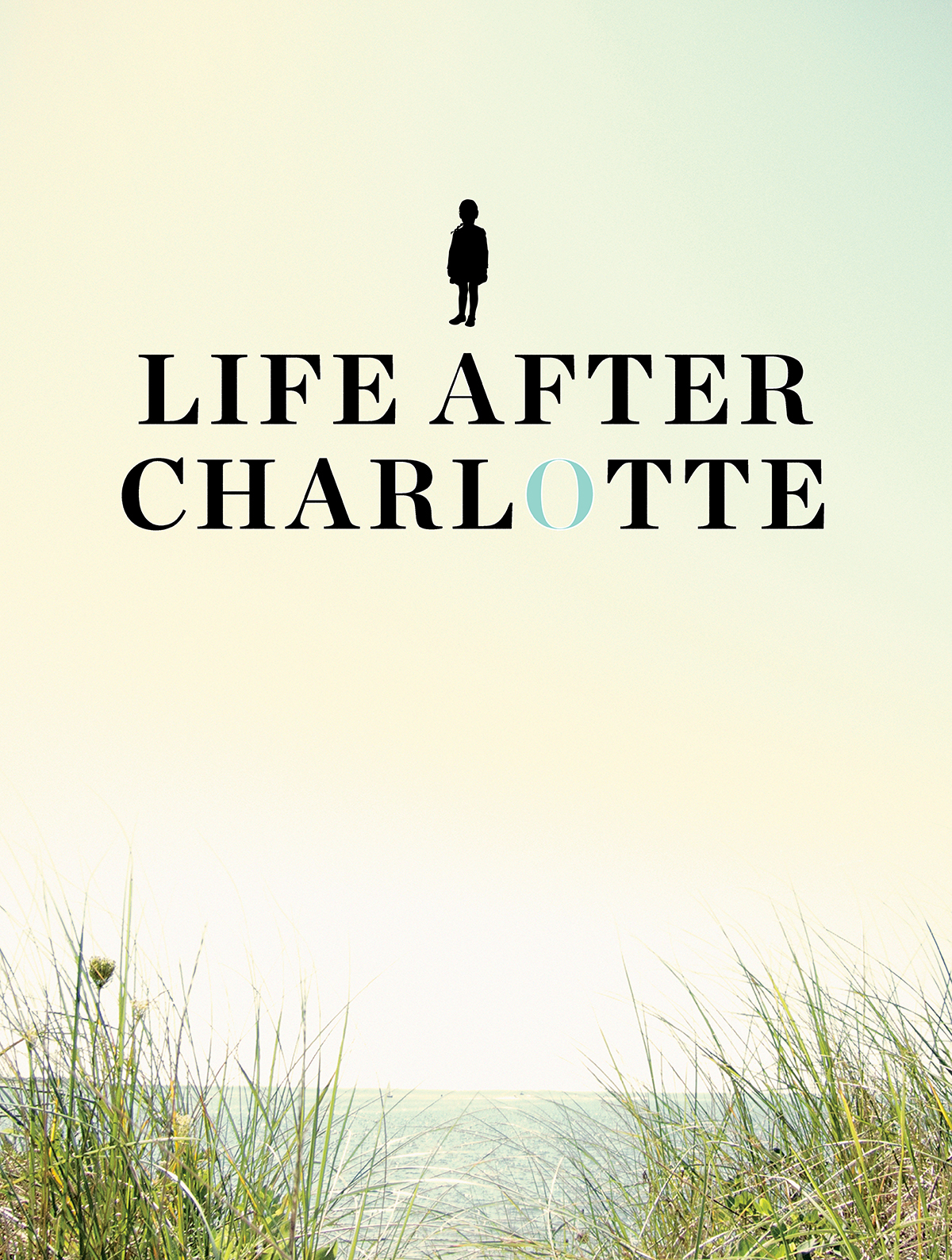Life After Charlotte
An excerpt from The Angel in My Pocket by Sukey Forbes

photograph by getty images/ SCPhotographie
We call a child who has lost her parents an orphan. An adult who loses a spouse is a widow or widower. Somehow there is no term for a parent who has lost a child, which may be because the experience was once so much the norm. Still, I don’t think frequency of occurrence would have made it any easier to endure for those earlier generations of parents.
Much has been written about how the poet Emerson was tortured by the loss of his beloved son Waldo, taken by scarlet fever at the age of five. Less has been said about the grieving of the boy’s mother, Lidian, who essentially took to her bed for the rest of her life, numbed by the drug of choice for 19th-century women, laudanum, also known as tincture of opium.
Today, even as people have easier access to their emotions, they keep their distance from the emotional reality of death, especially the death of small children. This means that a bereaved parent is treated either as a tragic figure or as a pariah. Suffering the death of a child seems almost like a curse, or freakishly bad luck, and for those who observe it, the loss brings their own vulnerability too close to home.
And yet society still seems willing to give the bereaved mother (fathers less so) a free pass. A mother who experiences this devastation could take to her bed and never emerge, and, opiates aside, I don’t think anyone would blame her. That kind of understanding is a gracious gesture, I suppose, but it does nothing to really help.
Not if the objective is for the mother to work through the pain and go on living. In those early weeks after Charlotte’s death, my gauge for where I was in the grieving process was how long it took each morning before I got the kicked-in-the-gut wake-up call of She’s Dead. Eventually, that neutral time of first awaking would move from milliseconds to minutes. But during the period when we were still sleeping on the air mattress, hearing the birds in the morning, and seeing the yellow room filled with dazzling light, I could hardly open my eyes before the rock-filled backpack dropped down onto my chest, the assigned weight I would carry around for the rest of the day.
I knew in time I would need to go back into Charlotte’s bedroom, and one bright afternoon in September I forced myself to go in. The space had been designed as a sitting room for the master suite, and it was on the opposite side of the house from where we were sleeping. It had a high-peaked ceiling and, with big windows on two sides, the room was very airy. The walls were a pale blue. Charlotte’s bed was an “officer’s campaign” collapsible contraption made of iron that I’d picked up from some overpriced decorator in San Francisco just before she was born. It had four high posts that I’d outfitted with a canopy and curtains for her. Alongside her bed, the south window looked out over the forge. The window to the east looked down the winding road toward the big oak tree where I’d watched the sun go down the day she died.
On that first, tentative visit, I stood gazing at the stuffed animals on the pillows and I felt myself descending into the grief. I lay down on Charlotte’s bed as if I were going to dissolve into the covers, and then I heard a voice say to me, “You can’t do this now.”
Rationally, I know it was just a thought, but I experienced it very distinctly as hearing a voice. The voice of God? Charlotte’s voice? The voice of little green men from Mars? I don’t know, but I heard it, and it was a compelling directive. In that moment I was keenly aware of the sensation of a succession of doors sealing chambers inside of me. The sensation was so powerful I could almost feel the reverberations sent out as they slammed shut.
I got up and I moved over to the south-facing window, where I noticed a nose smudge and a child’s handprint on the glass. Charlotte must have been standing there looking out and holding her face up against the windowpane. Two nights before she died we’d sent her to her room for teasing her sister. I pictured her in that spot staring out at us in the yard while she did penance. My gut ached at the thought of her missing out on the few precious moments she had left. I put my hand on that spot as close as possible without touching it and put my cheek up against it the same way.
A few days after the funeral, Charlotte’s ashes arrived, and my first thought was “I can’t believe this is all that’s left of you.” It wasn’t just that I was holding my daughter’s charred remains. It was the surreal notion that all that she had been—this huge, expansive soul, this beautiful spirit—could be reduced to fragments that would fit inside a pink cloisonné jar. My body ached and I had to hold on to something, but there was nothing to hold on to, so I just sat weeping and hugged the jar.
Desperate to occupy my mind, and ever the frugal Yankee, I began to organize her clothes and wrap them up, with hand-me-downs in mind. Her baby blanket, the towels with her name, her favorite pink sweater, the pineapple dress she wore around her waist like a long gypsy skirt. On one of the shelves was a pair of sparkly, sequined Mary Janes, and inside of them I could see the small dark depressions of her individual toes where the material had conformed to her foot. I put these on my dresser. Everything else I stored in a box, which I methodically labeled for future use: “Charlotte. Age six to eight.”

Charlotte Saltonstall Bigham on horseback at age six.
In the weeks ahead, whenever I was especially sad, I would go up and rummage through that box. One afternoon I clutched the pink sweater to my face and I almost fell over. I’d never thought that Charlotte had a distinctive smell until I recognized it. It was the smell of fresh air. But there was also the slight sweetness of newly mown hay, and maybe a hint of sea spray. It occurred to me that the last time she’d worn this sweater was on Naushon. This was the scent of a child who’d been running around and getting sweaty beneath a layer of sunscreen. Next thing I knew my knees had given out and I was on the floor sobbing, without inhibition, without the least bit of self-consciousness. The crying, of course, was an incredibly welcome physical release, but the mere fact that I was able to cry was every bit as powerful. I can do this, I thought. I’m human after all.
From then on I cried every day. I put the sweater in a Ziploc bag, and each afternoon I’d go up and open it and sniff it, and for a long time it smelled like her. With so much opening and closing, though, the smell began to fade. After a while it just smelled like a plastic bag.
One morning I found my husband sitting in the living room staring off into space. I had to get the kids off to school, but when I came back a half-hour later he hadn’t moved.
“Are you okay?” I asked.
“I don’t know,” he said. He seemed catatonic.
I decided to stay there with him, sitting quietly. After a while I asked again, “Are you okay?”
“I don’t know,” he repeated, but it was clear he couldn’t get out of the chair. “Something’s not right.”
That same night I was awakened by the most horrible sound out on the porch. I found my husband outside in his pajamas screaming in a shrill, keening way that seemed completely out of character. I could see him lit in profile by the light coming from inside the house. I sat down on the stone steps, hugged my knees, and wrapped my nightgown tightly around my legs. He was roiling in such anger that I was scared to go too near, but I was also worried about him. Then, as I watched, he picked up one of the huge granite planters sitting by the door and hurled it across the lawn. My gothic nightmare of derangement was coming true—only it wasn’t happening to me. It was Michael who was headed down the Charlotte Brontë path, and there wasn’t room for both of us. Rather than turning me into the mad wife in the attic from Jane Eyre, grief was turning Michael into the brooding Rochester.
Maybe his Catholic faith was too abstract, or his idea of heaven and the afterlife too distant, to provide anything more than momentary comfort. When scientists ask people to describe their concept of God, most respondents come up with some vague projection of themselves, only with supernatural powers. That same inchoate drive to extend the ego permeates so many attempts to prolong life, or defeat death. Some people leave instructions for their head to be removed and stored in liquid nitrogen in hopes of physical resurrection. Technical types talk about downloading the full contents of human brains onto hard drives that—theoretically—could last forever. But does a record of all your experiences, combined with every factoid that ever registered in your frontal lobes, constitute you? I don’t think so.
In those early days I began to search for books that might encourage me, or even guide me through this period of intense question, doubt, and misery. Most of what I read was that life was going to be forever changed (a pretty obvious insight, that one), but that if I was really lucky, at some point in the distant future I might find a “new normal.” The implication was that the best I could hope for was to go on living, but in an attenuated sort of way. And then, eventually, I’d be dead, too, so no worries.
That’s not what I wanted. I was determined to embrace my grief and devastation fully, and then to come out fully on the other side. But at this point in time, the priority was to hold the family together. If anyone was going to do it, for now it looked as though it was going to have to be me.
Michael’s parents had stayed on to look after us. They were retired, with time on their hands, but they were also genuinely worried about us, and they certainly wanted to help, especially with the kids. We had just moved into this new house and there were a million small errands to run, especially with back-to-school shopping upon us, so it was quite a comfort to have them around, though neither is the kind of person you can sit down with and have a good cry. Then again, I had the opposite problem. I had the feeling that they might be judging me for not being emotional enough. After all, their son was crying all the time.

